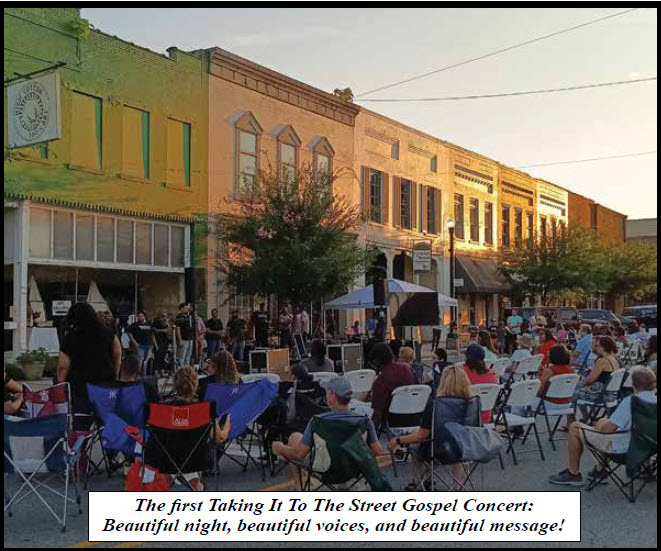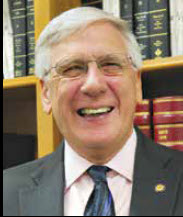It had been a wonderful weekend, and the “Taking It To The Street” gospel event held outside of High Cotton Arts had caused about 100 people to gather, fellowship, worship, hear the Word preached by John David Crowe, have “angels” (or people who sounded like angels) show up and sing, and close out with the Malones singing “Amazing Grace.” Mayor Ronnie made the following statement of gratitude: “We have the freedom in our country to have an event like this, and so many places don’t.” The street was closed, hearts were opened, and talking about it served as a perfect launch for our series on John Maxwell’s excellent book, High Road Leadership.
As we talked about John Maxwell’s contribution to our country and our culture, I learned something. Did you know that the now common phrase, “Teamwork makes the dream work” is actually a “Maxwell-ism,” if we can call it that? John Maxwell coined the term in 2002, and wrote a book by the same title. I doubt that he ever expected that phrase to catch on so completely. After all, Mr. Maxwell has managed to write a mere 85 books in his long career as an expert on excellent leadership, and in this time when we are so fractured, Maxwell’s strategy based on experience shows that the power of excellent leadership can indeed work miracles.
“Leadership in the community is not just ‘the chairs,’” said Mayor Ronnie, and by that he meant the titles we usually apply to leaders. Even if the only person we lead is ourselves, we have a responsibility to do it well,” he said. He went on to read to me some other Maxwell quotes, the most pertinent to our current discussion being that, “No leader can ever achieve anything great or long-lasting alone.” How true. The book goes on to say, “Leaders who practice high road leadership value all people, do the right things for the right reasons, take accountability for their actions, and place people above their own agenda.” We see precious little of that these days, unfortunately and being in leadership in the classic sense can be quite lonely when there are those whose values absolutely do not include “doing the right things for the right reasons.”
Maxwell says further:
“As we look at the current state of leadership, if we think all these problems have been created by ‘the other side,’ we’re missing the point. If we want a better culture, a better country, and a better world, we need to look in the mirror and recognize our own contributions to the division we’re experiencing. We need to have a change of heart and mind in how we treat people. Instead of widening the chasm between us, we need to build bridges and move toward others while looking for common ground. The way to do that is to become a leader who takes the high road. That is what this book is about.”
Though we are only going to talk about High Road Leadership for just a handful of “Ronnies,” we both know that the impact of the book is going to be powerful long after we finish it, and hope that people will catch the vision and get it for themselves. There is much to be done, and it is critical that it, in fact, gets done before it’s too late.
So, to that end we prayed, like we always do, and then it was time once again for Ronnie to roll.
By: Ali Elizabeth Turner








